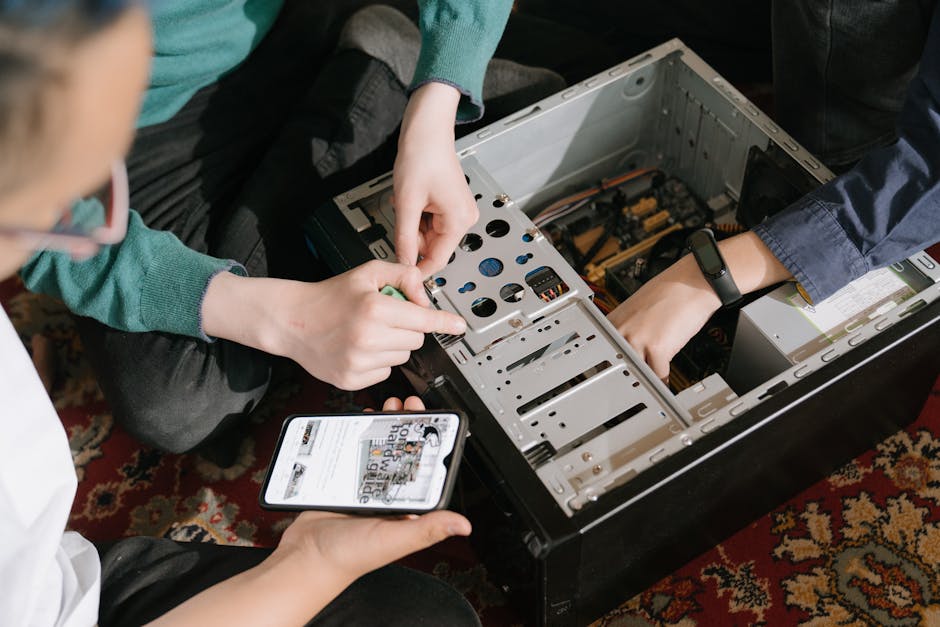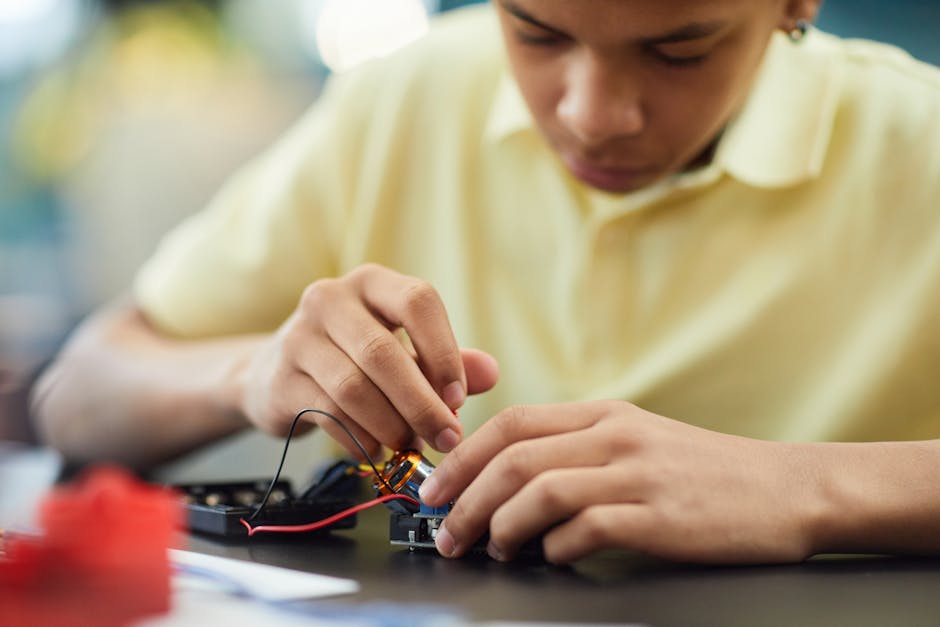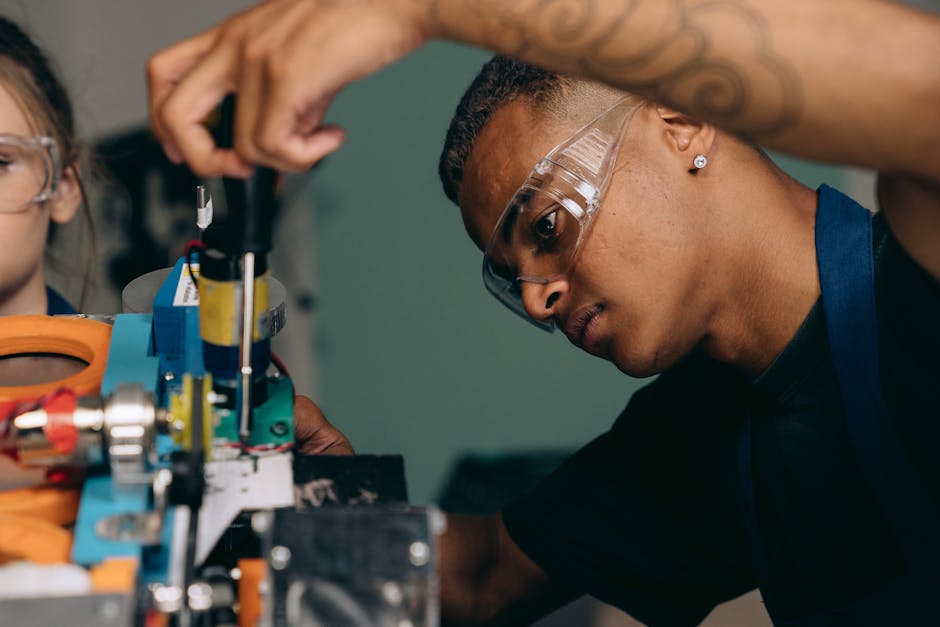The Importance of Continuing Education in Repairs
Have you ever wondered why some people are experts at fixing things while others struggle? The secret often lies in continuing education. In today’s fast-paced world, learning never stops, especially in the repair industry. This article dives into why keeping your skills fresh is essential for anyone involved in repairs.
Why is Continuing Education Important?

Continuing education helps repair professionals stay up-to-date with the latest techniques and technologies. Imagine trying to fix a car with tools and methods from the 1980s. Youd miss out on valuable insights that could save time and money.
According to the Bureau of Labor Statistics, occupations in repair and maintenance are expected to grow by 6% from 2019 to 2029. This growth means more opportunities but also more competition. To stand out, you need to keep learning.
What Are the Benefits of Continuing Education?

- Stay Current: New technologies emerge every day. By learning about them, you can improve your skills and effectiveness.
- Enhance Your Reputation: Customers trust professionals who invest in their education. It shows commitment and expertise.
- Boost Your Income: Higher skills often lead to higher pay. The more you know, the more valuable you become.
- Network Opportunities: Educational programs let you meet other professionals. Networking can lead to new job opportunities or partnerships.
How Can You Continue Your Education?

Wondering how to stay updated? Here are some popular options:
- Online Courses: Websites like Coursera and Udemy offer courses on various repair skills.
- Workshops and Seminars: Local community colleges often host hands-on workshops in specific repair fields.
- Certifications: Obtaining certifications can validate your skills. Look for industry-recognized programs in your field.
- Trade Shows: Attending trade shows allows you to see new tools and learn from experts.
Each of these options has it’s unique advantages. Choose what fits best with your schedule and learning style.
What Skills Should You Focus On?

When investing time in education, it’s important to focus on skills that will benefit your career. Here are some key areas:
- Technical Skills: Learning about the latest tools and technologies can improve your efficiency.
- Customer Service: Skills in communication and customer care are crucial. Happy customers lead to repeat business.
- Problem-Solving: Repair work often involves troubleshooting. Continuous learning helps sharpen this skill.
- Safety Protocols: Keeping updated on safety regulations protects you and your clients.
How Does Continuing Education Affect Customer Satisfaction?
Happy customers are the core of any successful repair business. They return, recommend you to others, and leave positive reviews. When you invest in your education, you enhance your skills, which translates directly to better service.
For example, consider a plumber who takes a course on eco-friendly practices. This plumber can now offer sustainable solutions that attract environmentally-conscious customers. The result? Increased satisfaction and loyalty.
What Do Experts Say About Continuing Education?
Experts agree that ongoing education is crucial. According to John Smith, a leading repair industry consultant, The repair landscape is changing rapidly. Those who stop learning risk becoming obsolete. His words highlight the importance of keeping skills sharp in an evolving marketplace.
What Are Common Misconceptions About Continuing Education?
Many people believe that continuing education is only for beginners or those struggling in their careers. This is a misconception. Here are some points to consider:
- it’s for Everyone: No matter how experienced you are, theres always something new to learn.
- it’s Not Just For Techies: Education applies to all repair fields, from appliances to automobiles.
- It Doesnt Have to Be Expensive: Many local organizations and online resources offer affordable or free options.
By clearing these misconceptions, you can see continuing education as a valuable investment in your career.
Can You Learn on the Job?
Absolutely! On-the-job training is a vital part of continuing education. Working alongside experienced professionals allows you to learn in real-time. However, combining this with formal education enhances your skill set even further.
For example, a mechanic might learn new diagnostic techniques while fixing cars. But if they also take a course on automotive electronics, theyll gain a deeper understanding that benefits their work.
How Can You Make Continuing Education a Habit?
Committing to ongoing education requires dedication. Here are some tips to make it a habit:
- Set Goals: Identify what skills you want to improve or learn.
- Allocate Time: Dedicate specific times each week for learning, just like you would for a meeting.
- Join a Community: Surround yourself with others who value education. This provides motivation and support.
- Stay Curious: Always ask questions and seek new information. Curiosity fuels learning.
By incorporating these practices, you can create a culture of learning in your life and career.
Conclusion: Take Action Today!
Continuing education in repairs is not just an optionit’s a necessity. The repair landscape is constantly changing, and you must evolve with it. By investing in your education, you can enhance your skills, increase customer satisfaction, and ultimately boost your income.
So, what are you waiting for? Take the first step today by signing up for a class or attending a workshop. Embrace the journey of lifelong learning and watch your repair career thrive.
For more information on repair strategies, check out this article on repair strategies.



